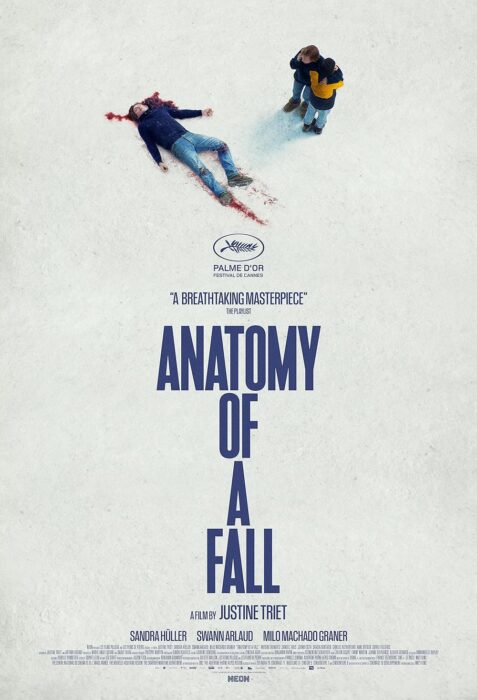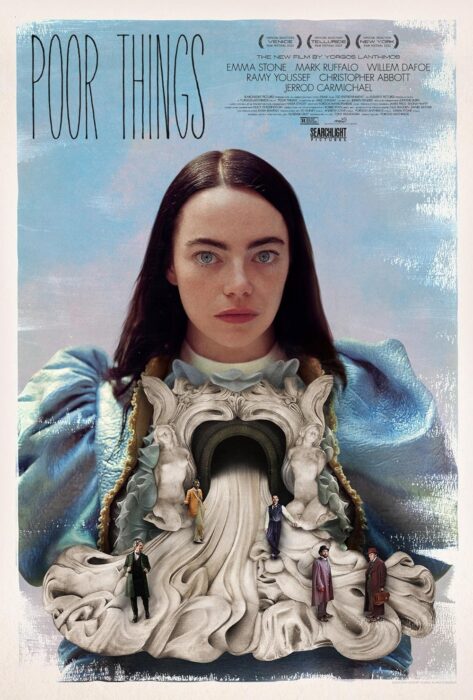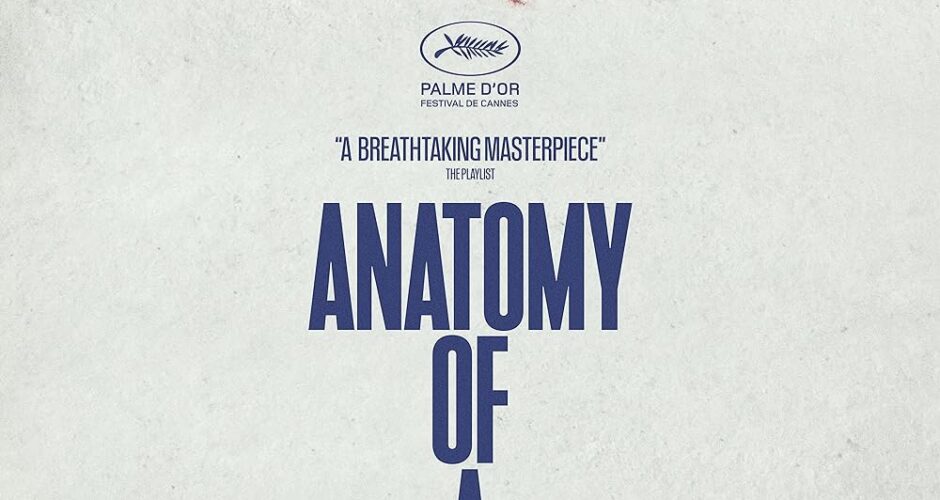Autumn is usually the time of year when the higher quality, less “mainstream” films hit
the theaters. All must open before December 31st in order to qualify for the 2023 Academy
Awards. And, true to form, a veritable parade of outstanding pictures has been released over
the past several months. Here are two of them.

“Anatomy of a Fall,” from French director/co-writer Justine Triet, stars the supremely gifted German actress Sandra Huller in a ‘did-she-or-didn’t-she’ courtroom drama about a
woman whose husband dies after falling from the third floor of their chalet in the French Alps. Samuel’s mangled body is discovered by the couple’s 11-year old son Daniel (Milo Machado Graner, giving one of the best child performances I have ever seen) when he returns from a walk with his dog. Daniel, who is visually impaired, is inconsolable over his father’s death. Sandra (who bears the same name as the actress playing her) seems more baffled than upset.
Both her reaction and the angle of the body in the snow lead police to suspect that Samuel’s death may not have been an accident. They arrest Sandra, who doesn’t seem to recognize the serious situation she is in. With more and more revelations about the couple’s less-than-happy relationship coming to light, the case becomes even murkier.
As the case progresses, the focus of the film slowly shifts away from the so-called
“adults” in the room (not just Sandra but also the rapacious prosecutors out for blood) and
onto Daniel, clearly the most sympathetic character in the film, whose fear of losing his mother
suddenly must contend with a gnawing distrust of her. His increasing confusion and palpable
distress at the facts that come to light during the trial place him in an untenable position. Yet it
is he, who has the most to lose, who also has the wisest and most intuitive insight into what
transpired that terrible day in the snow.
“Anatomy of a Fall” has picked up numerous awards since it premiered at the 2023
Cannes Film Festival, including that festival’s Palme d’Or and the European Film Award for Best
Film. Sandra Huller has won just about every Best Actress prize handed out over the past
several months. She also stars in the engrossing and powerful “Zone of Interest,” portraying a
character so drastically different you can hardly believe it‘s the same performer.

In a completely different vein is “Poor Things,” a sublimely surreal, Victorian-era comedy/drama from Greek-born auteur Yorgos Lanthimos (perhaps best known for 2018’s “The
Favourite”). Lanthimos possesses one of the wildest, most inventive minds; visually madcap styles; and warped sensibilities of the last few centuries. “Poor Things” takes an obvious page from Mary Shelley’s gothic masterpiece “Frankenstein,” except that Lanthimos’ mad scientist,
Dr. Godwin Baxter (Willem Dafoe), re-animates a young woman (Emma Stone) who has just committed suicide, replacing her no-longer-functioning brain with that of her infant, whom he delivers by C-section within moments of her mother’s death. Godwin names his creation Bella.
“Bella has so much to discover,” exclaims the exuberant young woman, speaking of herself in the third person as she lurches and twirls as if held aloft by marionette strings. As Godwin explains, “her body and mind are not quite synchronized.” Like any overly-protective parent, “God,” as Bella calls him, wants to restrict Bella’s freedom, confining her to his house and away from life’s temptations. But the curious and headstrong young woman has a mind of her own and refuses to be contained, running off with a narcissistic cad played (or over-played) by Mark Ruffalo. But that is just the beginning of Bella’s wild adventures.
The film is a hoot, with stunning sets and sumptuous cinematography. The film showcases the director’s penchant for wide-angle perspectives and fish-eye lenses of extreme proportion, giving the boisterous story its appropriately exaggerated look. Emma Stone gives a daring, uninhibited performance. Like Bella, she throws caution to the wind, delivering one of the most entertaining performances of the year.
